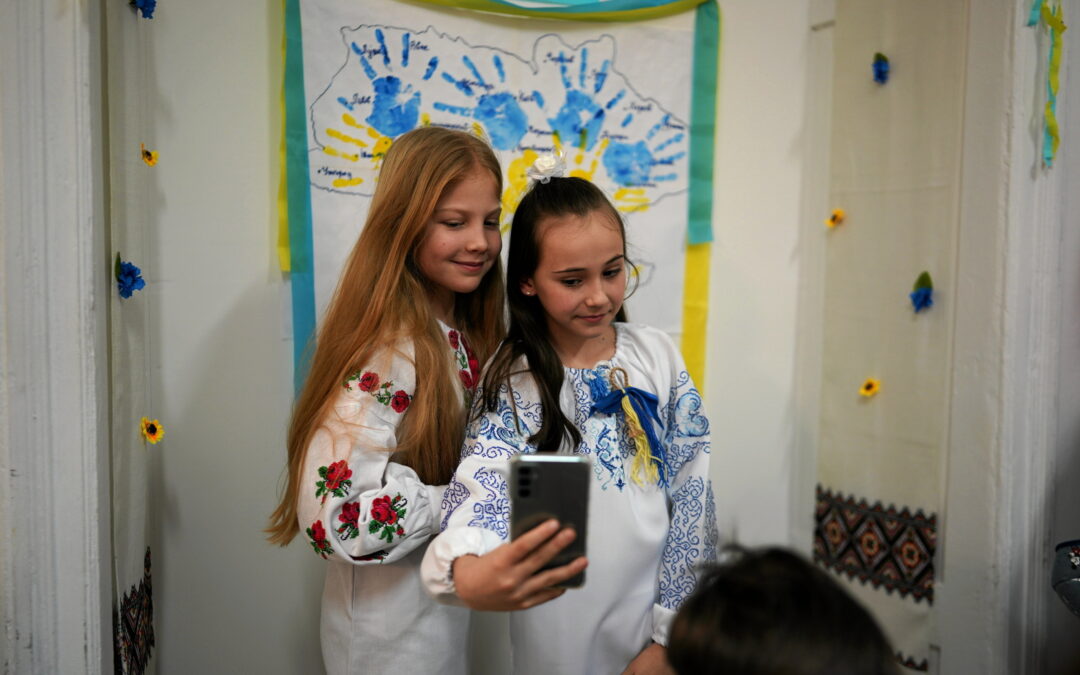Tens of thousands of new Ukrainian pupils are beginning school in Poland today after the government made it compulsory for refugee children from Ukraine to be in the Polish education system in order to receive benefits.
The education ministry estimates that between 20,000 and 80,000 new Ukrainian pupils will now start attending school.
The government insists that measures have been put in place to prepare schools for the influx of new pupils, including Ukrainian-speaking class assistants and additional Polish-language lessons. However, some media reports have indicated that principals and teachers do not feel ready for the change.
Poland’s education ministry is training intercultural assistants to help schools with an expected rise in the number of Ukrainian students.
From September, it will be compulsory for Ukrainian refugee children to attend school in order to receive benefits https://t.co/tRKBgcSlsd
— Notes from Poland 🇵🇱 (@notesfrompoland) July 10, 2024
Polish schools were opened to Ukrainian children – who made up around half of refugees – in the very first days after the start of Russia’s full-scale invasion of Ukraine. Parents, however, were not obliged to send their children to a Polish school, being able instead to continue their Ukrainian education remotely.
In April this year, the education ministry noted that around 275,000 Ukrainian children were enrolled in the Polish education system while it estimated that around 50,000 to 60,000 were not. In total, there were around 4.7 million children of all nationalities in the Polish school system.
In May, parliament approved legislation that, from the start of the new school year in September, makes it compulsory for Ukrainian refugee children to attend school if they are to receive child benefits.
One exception is for students who are in the final stage of the Ukrainian education system, who will be allowed to finish those studies online rather than attend Polish schools.
Sorry to interrupt your reading. The article continues below.

Notes from Poland is run by a small editorial team and published by an independent, non-profit foundation that is funded through donations from our readers. We cannot do what we do without your support.
Last month, education minister Barbara Nowacka admitted to the Polish Press Agency (PAP) that “we don’t really know how many students [from Ukraine] will [now] go to Polish schools, because this data has never been kept”.
She said that the ministry estimated the number at 20,000 to 40,000, and denied suggestions from Ukraine that it could be as much as 160,000. Speaking yesterday to broadcaster Polsat, deputy education minister Katarzyna Lubnauer repeated the 20,000 to 40,000 estimate.
However, last week another deputy education minister, Joanna Mucha, gave an estimate of 60,000 to 80,000 in an interview with Radio Lublin. The Center for Civic Education (CEO), an NGO, estimates between 20,000 and 60,000.
Poland does not know how many Ukrainian children will attend Polish schools from September when enrolment becomes mandatory for refugee children.
Poland is expecting between 20,000-40,000 children, while Ukraine estimates 160,000https://t.co/BBjIMBjncL
— Notes from Poland 🇵🇱 (@notesfrompoland) August 21, 2024
In a report published last week, TVN, Poland’s largest private broadcaster, presented concerns from a number of teachers and education experts that, while there is widespread support for bringing Ukrainian children into the Polish education system, schools do not feel ready for the sudden influx.
“The system will cope, but individual schools not necessarily,” said one teacher.
“I don’t feel like anyone has thought about it comprehensively,” an activist from the Wolna Szkoła education NGO, who also teaches Polish to Ukrainian children, told TVN.
Mucha, however, made assurances last week that “Polish schools are ready to accept children from Ukraine”. She also added that the government’s aim is to “integrate, not Polonise” Ukrainian children. It has been training new “intercultural assistants” to help pupils and schools adapt.
However, a new report by the GrowSPACE Foundation, an NGO, found that only 81 local authorities have plans to employ cultural assistants. The foundation believes that the figure is so low because schools do not yet know exactly how many Ukrainian pupils will attend and what forms of support they will need.
Sam pomysł, by dzieci i młodzież z Ukrainy objąć w Polsce obowiązkiem szkolnym, jest bardzo dobry – oceniają nasi rozmówcy. Gorzej jest niestety z realizacją tego pomysłu.
Tekst @adriannaotreba⤵️https://t.co/SSGH6unWyC
— tvn24 (@tvn24) August 30, 2024
Speaking on Friday to TVN, Mucha also noted that new data show that the number of Ukrainian children receiving Poland’s main form of child benefit, known as “800+”, has declined by 36,000 since the start of the year.
“Some Ukrainian parents have withdrawn from receiving 800+, which is surprising considering that the number of Ukrainian children has increased by 10,500 in the same period,” she said. “I associate this with the introduction of compulsory schooling and linking it to 800+.”
Last week, Prime Minister Donald Tusk said that one of the reasons for introducing compulsory school for Ukrainian refugees was to prevent “abuses” of the system whereby parents “collected 800+ for children who were not in Poland at all”.
“That is why we made this decision, which will of course mean a very significant decrease in the number of benefits for Ukrainian children for obvious reasons,” he added, quoted by financial news website Money.pl. “There will be a verification, which will result in a significant reduction in these payments.”
800 plus dla ukraińskich dzieci do weryfikacji. "Żeby wyeliminować nadużycia" ⬇️ https://t.co/AdXFDcehOX
— DoRzeczy (@DoRzeczy_pl) August 30, 2024
Main image credit: Grzegorz Skowronek / Agencja Wyborcza.pl

Daniel Tilles is editor-in-chief of Notes from Poland. He has written on Polish affairs for a wide range of publications, including Foreign Policy, POLITICO Europe, EUobserver and Dziennik Gazeta Prawna.



















